Senator Wolk Seeks Compromise on Redevelopment
 by Dan Oney –
by Dan Oney –
Wolk’s legislation, Senate Bill 214, is a compromise between the entrenched camps of the Redevelopment debate. For proponents of eliminating redevelopment, claiming that they are wasteful and operate to the detriment of schools and other core services, it will protect source of revenues to these services from being usurped by redevelopment. For the proponents of redevelopment, SB 214 would allow Infrastructure Financing Districts (IFDs) to absorb many of the functions of the current redevelopment agencies.

 by Dan Oney –
by Dan Oney – 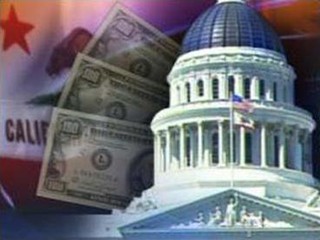 LAO Letter Lays Out The Face Of An All-Cuts Budget –
LAO Letter Lays Out The Face Of An All-Cuts Budget – 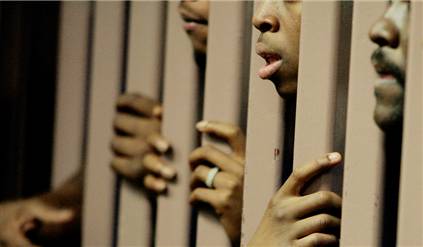 The problem of soaring prison costs is nothing new in California government, even as the state faces largely unprecedented problems with its budget.
The problem of soaring prison costs is nothing new in California government, even as the state faces largely unprecedented problems with its budget.
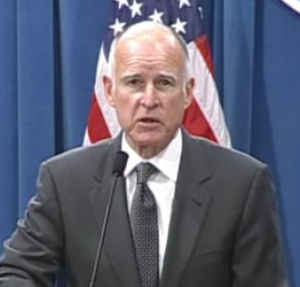 Governor Jerry Brown delivered the first State of the State Address of his new tenure as California’s Governor, and he called on both Democrats and Republicans to do things that they do not want to do.
Governor Jerry Brown delivered the first State of the State Address of his new tenure as California’s Governor, and he called on both Democrats and Republicans to do things that they do not want to do.
 This morning’s Sacramento Bee points out that those who own the land and buildings in downtown Sacramento pay an estimated 31 million dollars in property taxes every year. Contrary to popular belief, most of that money does not go to fund schools or the local government.
This morning’s Sacramento Bee points out that those who own the land and buildings in downtown Sacramento pay an estimated 31 million dollars in property taxes every year. Contrary to popular belief, most of that money does not go to fund schools or the local government.
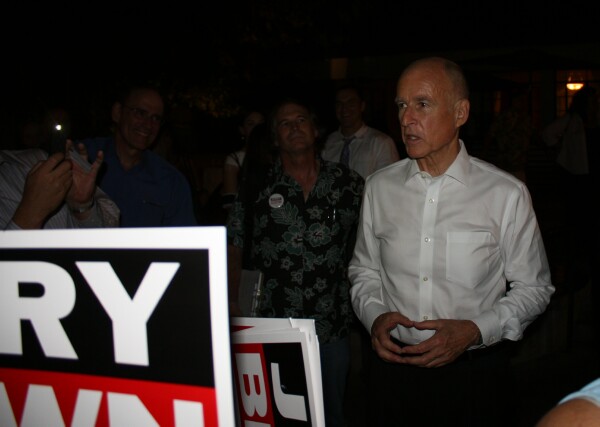 In an Op-ed in the LA Times yesterday, Joe Mathews asked if the failures of Arnold Schwarzenegger will save the state. He argued, “Nothing worked for Schwarzenegger because the system itself doesn’t work.”
In an Op-ed in the LA Times yesterday, Joe Mathews asked if the failures of Arnold Schwarzenegger will save the state. He argued, “Nothing worked for Schwarzenegger because the system itself doesn’t work.”
 Last week we reported that Genentech, one of the chief backers of Prop 24’s efforts to prevent the closing of tax loopholes opened up in the 2008 and 2009 budget deals, had pumped 1.6 million dollars into the efforts to defeat Prop 24, only to turn around and eliminate over 800 California jobs.
Last week we reported that Genentech, one of the chief backers of Prop 24’s efforts to prevent the closing of tax loopholes opened up in the 2008 and 2009 budget deals, had pumped 1.6 million dollars into the efforts to defeat Prop 24, only to turn around and eliminate over 800 California jobs.
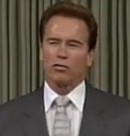 Apparently Governor Arnold Schwarzenegger did not get the memo – he is a lame duck, he is no longer in charge, and even when he was in charge he did a poor job of getting budgets passed anyway. It is time to step aside and let Governor-Elect Jerry Brown have a shot at it.
Apparently Governor Arnold Schwarzenegger did not get the memo – he is a lame duck, he is no longer in charge, and even when he was in charge he did a poor job of getting budgets passed anyway. It is time to step aside and let Governor-Elect Jerry Brown have a shot at it.
 Governor Calls Out Republican Legislators for Attempting to Block Reform –
Governor Calls Out Republican Legislators for Attempting to Block Reform – 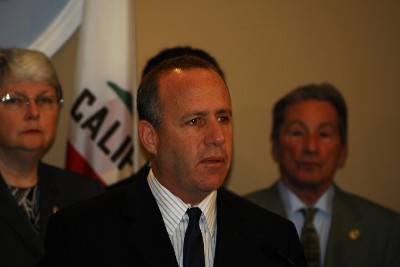 They would not share the details on Friday night, but the Governor and legislative leaders from both parties apparently believe that they have reached an agreement that would end the state’s record-setting budget stalemate.
They would not share the details on Friday night, but the Governor and legislative leaders from both parties apparently believe that they have reached an agreement that would end the state’s record-setting budget stalemate.
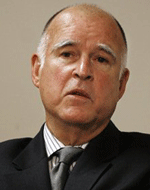 For those who do not believe that pension reform is quickly becoming inevitable, the proposal by Democratic Governor Candidate Jerry Brown probably makes it exactly that. And while his opponent Meg Whitman was quick to attack the proposal, it has always been my hope that more moderate forces would get out in front on this issue.
For those who do not believe that pension reform is quickly becoming inevitable, the proposal by Democratic Governor Candidate Jerry Brown probably makes it exactly that. And while his opponent Meg Whitman was quick to attack the proposal, it has always been my hope that more moderate forces would get out in front on this issue.